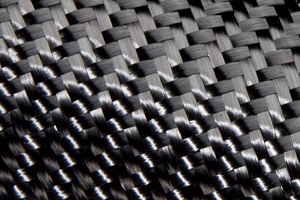Snowboarding has surged in popularity over the past several years, and, as with any sport that enjoys increasing participation, improvement in equipment and materials manufacturing is quick to follow.

Traditionally, the core of a snowboard – the central structure that determines its strength, flexibility, and vibration dampening capabilities – has been made of wood. Typically laminated bamboo strips, birch, or beech have been used, as they are lightweight, relatively affordable, strong, and most importantly, flexible. They also have excellent vibration dampening capabilities.
But in the modern era, advanced manufacturing and expanded access to superior materials have shifted production. Now, there are snowboards on the market with cores of aluminum, fiberglass, kevlar, and even carbon fiber flat sheets.
But to understand why these often make superior materials, we have to understand what makes a quality snowboard in the first place.
What Are the Attributes of a Quality Snowboard?
The first thing it’s essential to recognize is that there is not one single set of universal traits that makes a good snowboard. For instance, snowboards all have different cambers, which refers to the manner in which the snowboard contains the ground. Snowboards also have different lengths and stiffnesses, as well as widths. These features influence snowboard balance and handling, as does the edge profile of the board.
It’s also important to recognize that snowboards are not made from one material. All of the different components of a snowboard – including the core, topsheet, base layer, base, and edges, may all be made from different materials.
However, the central component of the snowboard is the core. The core, and the manner in which the core’s layers are arranged, chiefly determine the characteristics of a snowboard.
It is the core that will determine the stiffness, strength, and torsional loading of a snowboard. Although some snowboards are stiffer than others, all must be made with strong cores that are capable of absorbing transverse flexion (bending from end to end). Therefore, a core material that is capable of being used to create snowboards of varying stiffnesses is ideal.
Torsion refers to the manner in which the snowboard twists around an axis that runs through its center. It is another aspect of flexibility, but not all materials are capable of handling transverse loading (end to end flex) as they are of handling torsion (twisting). This makes it useful to use a material that is suitable in both respects.
Moreover, materials that are lighter and stronger are generally favored, as these lessen the overall weight of the board while increasing performance.
Why Carbon Fiber Flat Sheets Can Be Used to Make Excellent Snowboard Cores
Though a variety of materials have been used to construct snowboard cores in the past, and many still are, carbon fiber sheets show a lot of promise.
They tend to be more expensive than other alternatives, but carbon fiber is significantly lighter and stronger than steel, and lighter than aluminum as well. It is also lighter and stronger than fiberglass and many different types of wood.
Carbon fiber can be manufactured in precise thicknesses as demanded by the application, and depending on the density and arrangement of the fibers in the matrix, can be made both very stiff and very flexible. It can also handle transverse and torsion flexion very well and can be manufactured in extremely thin sheets that can be used to add stability and strength.
Where Can You Get Carbon Fiber Flat Sheets Manufactured to Your Precise Specifications?
If you’re interested in learning more about high-quality carbon fiber flat sheets or need a manufacturer that can supply you with precise, custom thicknesses and dimensions, whether for the construction of snowboards or for any other purpose, visit Protech Composites at ProtechComposites.com.
They offer a wide range of carbon fiber twill panels in 19 pre-configured product dimensions but will manufacture panels up to .5” in custom dimensions on request. Visit their website for more information or contact them directly at 360-573-7800.
For more information about Carbon Fiber Knife Handle Material and Carbon Fiber Drone Parts Please visit: Protech Composites Inc.

